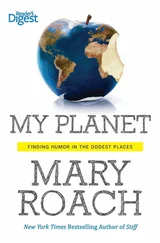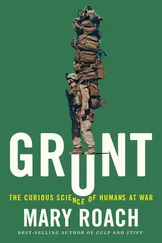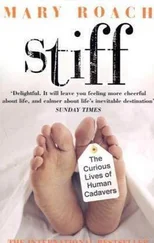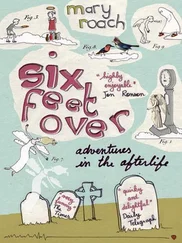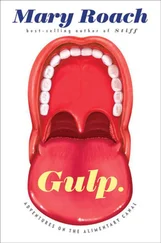IT IS DIFFICULT, though delightful, to picture John Glenn or Alan Shepard applying his talents to the ancient art of paper-folding. America’s first astronauts were selected by balls and charisma. All seven Mercury astronauts, by requirement, were active or former test pilots. These were men whose nine-to-five involved breaking altitude records and sound barriers while nearly passing out and crashing in screaming-fast fighter jets. Up through Apollo 11, every mission included a major NASA first. First trip to space, first orbit, first spacewalk, first docking maneuver, first lunar landing. Seriously hairy shit was going down on a regular basis.
With each successive mission, space exploration became a little more routine. To the point, incredibly, of boredom. “Funny thing happened on the way to the moon: not much,” wrote Apollo 17 astronaut Gene Cernan. “Should have brought some crossword puzzles.” The close of the Apollo program marked a shift from exploration to experimentation. Astronauts traveled no farther than the fringes of the Earth’s atmosphere to assemble orbiting science labs—Skylab, Spacelab, Mir, ISS. They carried out zero-gravity experiments, launched communications and Defense Department satellites, installed new toilets. “Life on Mir was mostly mundane,” says astronaut Norm Thagard in the space history journal Quest. “Boredom was the most common problem I had.” Mike Mullane summed up his first Space Shuttle mission as “throwing a few toggle switches to release a couple comms satellites.” There are still firsts, and NASA proudly lists them, but they don’t make headlines. Firsts for shuttle mission STS-110, for instance, include “first time that all of a shuttle crew’s spacewalks were based from the station’s Quest Airlock.” “Capacity to Tolerate Boredom and Low Levels of Stimulation” is one of the recommended attributes on a Space Shuttle–era document drafted by the NASA In-House Working Group on Psychiatric and Psychological Selection of Astronauts.
These days the astronaut job title has been split into two categories. (Three, counting payload specialist, the category into which teachers, boondoggling senators, [2] Between the astronauts who used their status to win a place in the Senate and the senators who used their influence to win a spot on a NASA mission, there’s practically been a Senate quorum in space. (John Glenn managed to work it both ways, returning to space as a seventy-seven-year-old senator.) The gambit occasionally backfires, as when Jeff Bingaman defeated Apollo-astronaut-turned-New-Mexico-senator Harrison Schmitt using the campaign slogan “What on Earth has he done for you lately?”
and junketing Saudi princes fall.) Pilot astronauts are the ones at the controls. Mission specialist astronauts carry out the science experiments, make the repairs, launch the satellites. They’re still the best and the brightest, but not by necessity the boldest. They’re doctors, biologists, engineers. Astronauts these days are as likely to be nerds as heroes. (JAXA astronauts on the ISS thus far have been classified as NASA mission specialists. The ISS includes a JAXA-built laboratory module, called Kibo.) The most stressful part of being an astronaut, Tachibana told me, is not getting to be an astronaut—not knowing whether or when you’ll get a flight assignment.
The first time I spoke to an astronaut, I didn’t know about the pilot–mission specialist split. I pictured astronauts, all of them, as they were in the Apollo footage: faceless icons behind gold visors, bounding like antelopes in the moon’s weak gravity. The astronaut was Lee Morin. Mission Specialist Morin is a big, soft-spoken man. One foot turns in slightly as he walks. He was dressed in chinos and brown shoes the day we met. There were sailboats and hibiscus flowers on his shirt. He told me a story about how he helped test the lubricant for a launch-pad escape slide on the Space Shuttle. “They had us bend over and they brushed our butts with it. And then we jumped on the slide. And it passed, so [the shuttle mission] could go forward and the space station could be built. I was proud,” he deadpanned, “to do my part for the mission.”
I remember watching Morin walk away from me, the endearing gait and the butt that got lubed for science, and thinking, “Oh my god, they’re just people.”
NASA funding has depended in no small part upon the larger-than-life mythology. The imagery forged during Mercury and Apollo remains largely intact. In official NASA 8-by-10 astronaut glossies, many still wear spacesuits, still hold their helmets in their laps, as though at any moment the Johnson Space Center photography studio might inexplicably depressurize. In reality, maybe 1 percent of an astronaut’s career takes place in space, and 1 percent of that is done in a pressure suit. Morin was on hand that day as a member of the Cockpit Working Group for the Orion space capsule. He was helping figure out sight lines and optimal placement of computer displays. Between flights, astronauts spend their days in meetings and on committees, speaking at schools and Rotary clubs, evaluating software and hardware, working at Mission Control, and otherwise, as they say, flying a desk.
Not that bravery has been entirely phased out. Those recommended astronaut attributes also include “Ability to Function Despite Imminent Catastrophe.” If something goes wrong, everyone’s clarity of mind is needed. Some selection committees—the Canadian Space Agency’s, for instance—appear to put greater emphasis on disaster coping skills. Highlights of CSA’s 2009 astronaut selection testing were posted in installments on the Web site home page. It was reality television. The candidates were sent to a damage-control training facility, where they learned to escape burning space capsules and sinking helicopters. They leapt feetfirst into swimming pools from terrifying heights while wave generators pushed 5-foot swells. A percussive action-movie soundtrack ramped up the drama. (It is possible the footage had more to do with attracting media coverage than with the realities of choosing Canada’s next astronaut.)
Earlier, I asked Tachibana whether he was planning to pull any surprises on his candidates, to see how they cope under the stress of a sudden emergency. He told me he had given thought to disabling the isolation chamber toilet. Again, not the answer I was expecting, but genius in its way. The footage might not play as well with a kettledrum soundtrack (and then again it might), but it’s a more apt scenario. A broken toilet is not only more representative of the challenges of space travel, but—as we’ll see in chapter 14—stressful in its own right.
“Before you arrived yesterday,” Tachibana added, “we delayed lunch by one hour.” The little things can be big tells. Unaware that a late lunch or a malfunctioning toilet is part of the test, the applicants behave truer to character. When I first began this book, I applied to be a subject in a simulated Mars mission. I made it past the first round of cuts and was told that someone from the European Space Agency would call me for a phone interview later in the month. The call came at 4:30 A.M., and I did not take care to hide my irritation. I realized later that it had probably been a test, and I had failed it.
NASA uses similar tactics. They’ll call an applicant and tell her that they need to redo a couple tests on her physical and that they need to do it the following day. “What they’re really doing is saying, ‘Let’s see if they’ll drop everything to be one of us,’” says planetary geologist Ralph Harvey, whose Antarctic Search for Meteorites (ANSMET) program personnel sometimes apply for astronaut openings. (Antarctica is a useful analog for space, and people who thrive there are thought to be psychologically well equipped for the isolation and confinement of space travel.) Harvey recently got a call about one such applicant. “They said, ‘We’re going to give him a T-38 to fly for the first time tomorrow. And we’d like you to go along with him as an observer and tell us how you think he’s doing.’ And I said, ‘Absolutely.’ But I knew that wasn’t going to happen. What they were doing was assessing my confidence level in the person.”
Читать дальше

